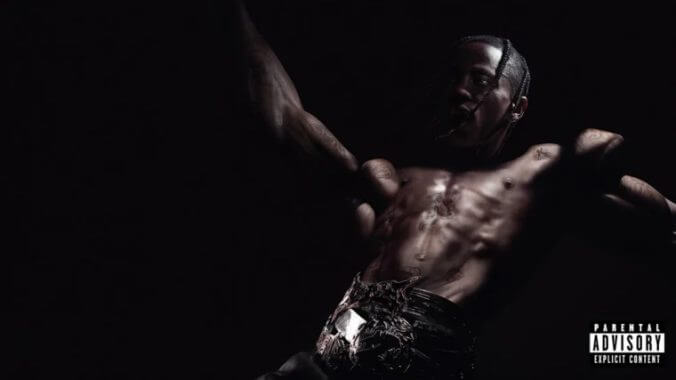Travis Scott’s Utopia: In With the Old and Out With the New

It’s been five years since Travis Scott released Astroworld. Since then, he released a collaborative project with his label Cactus Jack Records and a few random features and singles—but he seemed to be taking his sweet time with his fourth album. It’s not hard to see why, as Astroworld elevated him to a household name similar to the likes of Drake. He has a McDonald’s meal, a concert in Fortnite, became a “strategic creative partner” for the PS5 and even launched a hard seltzer called CACTI.
Everything about Utopia until the album’s release indicated that Scott was upping the ante after the five years since Astroworld. An A24 distributed movie to accompany the album, a now-cancelled performance at the Pyramids of Giza, teases of a stadium tour (almost unheard of for hip-hop artists) and even placing totems in the town of Utopia, TX—it proves Scott is one of the more ambitious A-list rappers, if nothing else.
Utopia is, in parts, as grandiose as the rollout would have you believe. It’s got a star-studded feature list (including Kid Cudi, Drake, Playboi Carti, Beyoncé and Young Thug, among others), varied soundscapes and the signature psychedelic sound that Scott is the forerunner of in hip-hop. Anyone expecting a direct sequel to Astroworld will be disappointed, as it is far moodier and more in line with his earlier albums, like Birds in the Trap Sing McKnight. But past this opulence, the album is often shallow in the moments where Scott’s production can’t mask some of his lackluster writing.
The album opens with “Hyaena” which sees Scott name-dropping celebrities and bragging about money and various luxuries like private planes. The energy here blows anything he released in the gap since Astroworld out of the water, with his tight flows and cadences seeming to set the tone for the album.
-

-

-

-

-

-

-

-

-

-

-

-

-

-

-

-

-

-

-

-

-

-

-

-

-

-

-

-

-

-

-

-

-

-

-

-

-

-

-

-








































